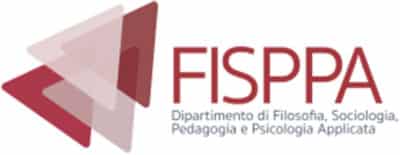
The First-level Short Specialisation Degree in Death Studies & The end of Life for the intervention of support and the accompanying deals with developing the ability to tackle death-related topics in all their aspects, by taking into account the emerging instances in cultural, social and healthcare field, with specific reference to the provisions of Laws 38/2010 and 219/2017 and to the most current discussions on end of life.
The First-level Short Specialisation Degree in Death Studies & The end of Life for the intervention of support and the accompanying offers the conceptual references to access aspects relating to:
- cultural and historical evolution of the concept of death;
- grief and psychological loss and processing aspects;
- death education as educational and prevention strategy;
- understanding of death-related symbols and representations in the life cycle and in the different cultural contexts;
- bioethics and biolaw elements, thanatological counselling and psychological and/or philosophical support;
- relationship between thanatology and medical, psychological, philosophical, sociological, anthropological and historical sciences.
- take-over and end-of-life care.
The First-level Short Specialisation Degree in Death Studies & The end of Life for the intervention of support and the accompanying trains professional figures such as:
- Experts who work with palliative care services;
- Experts for territorial services who use self-help and voluntary networks;
- Experts in thanatology counselling and death accompanying.
Attendees acquire knowledge of the way in which traumatic and natural death are represented individually and socially; the ability to plan, implement and assess educational paths on how to process the sense of death; the ability to plan help relationships with the dying person and their family individually and/or as a group; competencies in conducting work groups with doctors, psychologists, nurses, trainers, educators, social workers; the ability to recognize the social needs related to death and grief within hospital wards, territorial facilities, private institutions and in the private social field.
The First-level Short Specialisation Degree in Death Studies & The End of Life provides several specialized disciplines in the three essential fields of knowledge: philosophical and religious, medical/nursing, psychological, sociological and anthropological.
The contents concern:
- the meaning of death and dying;
- the different forms of dying;
- dying in different cultures and situations;
- grief and psychological loss and processing aspects;
- death education, between primary/secondary/tertiary prevention;
- death within the lifecycle;
- end-of-life management, between bioethics and biolaw;
- consultancy and support to dying people and their caregivers;
- thanatology and medical, psychological, philosophical, legal and religious sciences.
Particular attention is given to the personal processing of the attendees’ opinions and attitude concerning death and the fear of death, so that the competencies concerning individual and social-cultural representations of death in all its concrete and symbolic expressions are operationalized and adjusted to plan interventions aimed at promoting life and its quality in suffering and crisis situations.
Macro-topics covered:
- Death and earth;
- Psychology and philosophy: between eternity and mystery;
- Psychodrama for grief processing;
- Psychology of help relationships;
- Psycho-oncology;
- Emphatic abilities and respectful listening in terminal diseases and grief;
- Cultural thanatology anthropology;
- End of life, palliation and psycho-oncology: intervention and research models;
- Narration and death education;
- Care philosophy and words;
- Bioethics and biolaw reflections and practice;
- Lifecycle psychology and understanding of death;
- Psychothanatology and death education;
- Death in philosophical and theological thinking;
- Spirituality, transcendence and meditation. Traditional death preparation techniques;
- Death metaphysics;
- Pre-death and non-ordinary experiences – the mind-brain relationship;
- History of death, of dying and of funeral rituals;
- From suicide to traumatic grief: intervention and prevention strategies;
- Ageing psychology.
Lessons, during 24.25 edition, are held on the following days:
– FRIDAY, DECEMBER 13
– SATURDAY, DECEMBER 14
– FRIDAY, JANUARY 17
– SATURDAY, JANUARY 18
– FRIDAY, JANUARY 31
– SATURDAY, FEBRUARY 1
– FRIDAY, FEBRUARY 14
– SATURDAY, FEBRUARY 15
– FRIDAY, FEBRUARY 28
– SATURDAY, MARCH 1
– FRIDAY, MARCH 14
– SATURDAY, MARCH 15
– FRIDAY, MARCH 28
– SATURDAY, MARCH 29
– FRIDAY, APRIL 11
– SATURDAY, APRIL 12
– FRIDAY, MAY 9
– SATURDAY, MAY 10
– FRIDAY, MAY 23
– SATURDAY, MAY 24
– FRIDAY, JUNE 6
– SATURDAY, JUNE 7
– FRIDAY, JUNE 27
– SATURDAY, JUNE 28
– FRIDAY, JULY 11
– SATURDAY, JULY 12
(Events related to the First-level Short Specialisation Degree’s topics will be constantly updated)
The general ranking of merit for the academic year 2025/26 will be published on the Italian page of this Master according to the timing provided in the Call.
Information
FAQ
Anyone with a Bachelor or Master’s Degree can access the Master. Those without a degree can participate as listeners.
The “standard” course is addressed to anyone who possesses the titles to access the Master, and ends with the attribution of the Master’s diploma, after having observed the mandatory attendance and project work.
Those without a degree can participate as listeners; the Master offers 8 seats to this end. Listeners are not required to complete the traineeship and the project work.
The First-level Short Specialisation Degree is organized in thematic modules, usually held on Friday and Saturday. In-person lessons are mandatory for 70% of the total, and they are supported by distance learning on Moodle platform.
The course includes in-class lessons, distance learning, experiential workshops and project work, educational trips, the Moodle platform for materials and lesson recordings, and a forum for communications with tutors, professors and students, the option of taking part in all seminars, conferences, educational events and congresses organized by FISPPA and by the Master free of charge.
Also, lessons focused on art-therapy processing experiences will be held.

